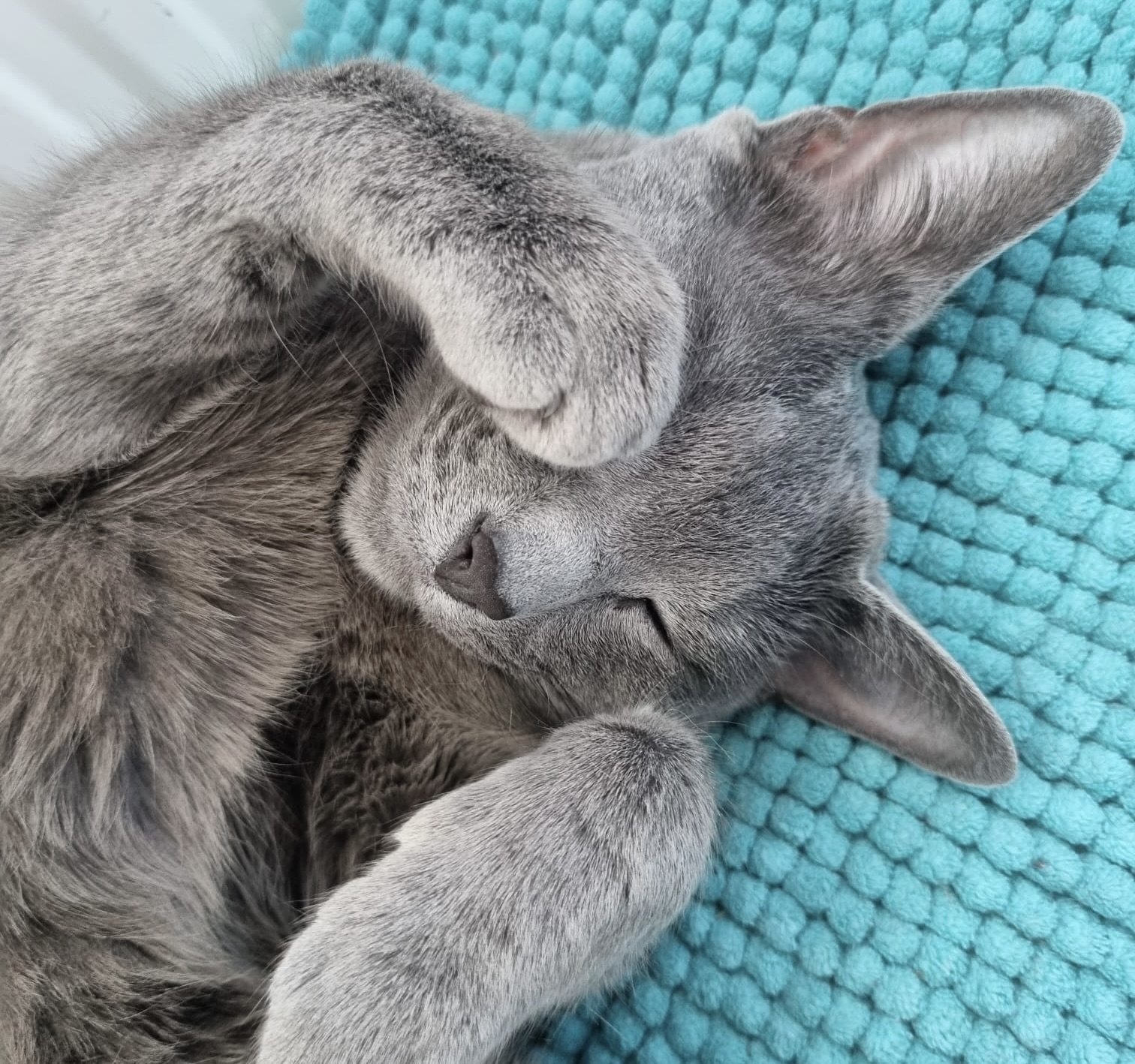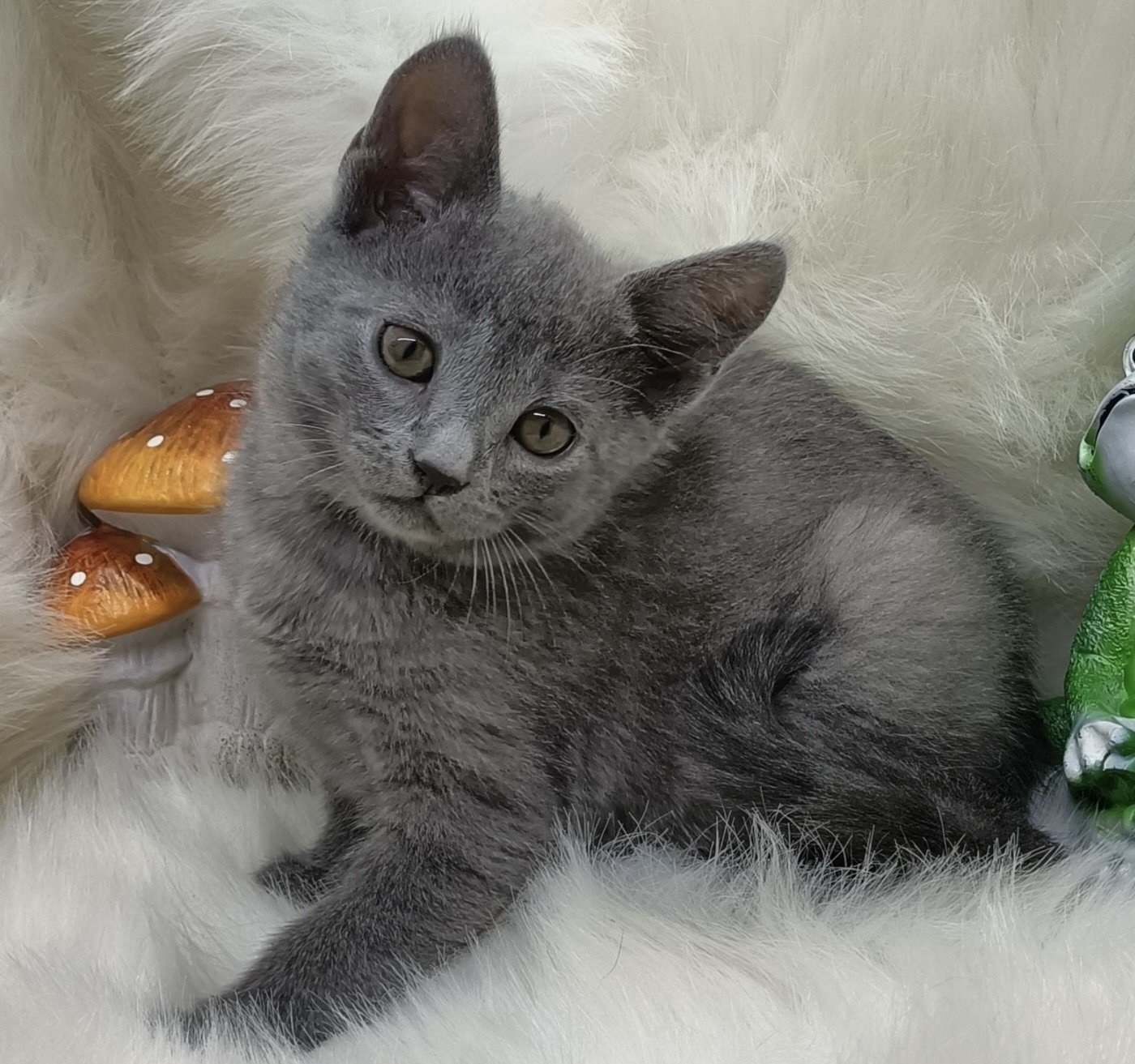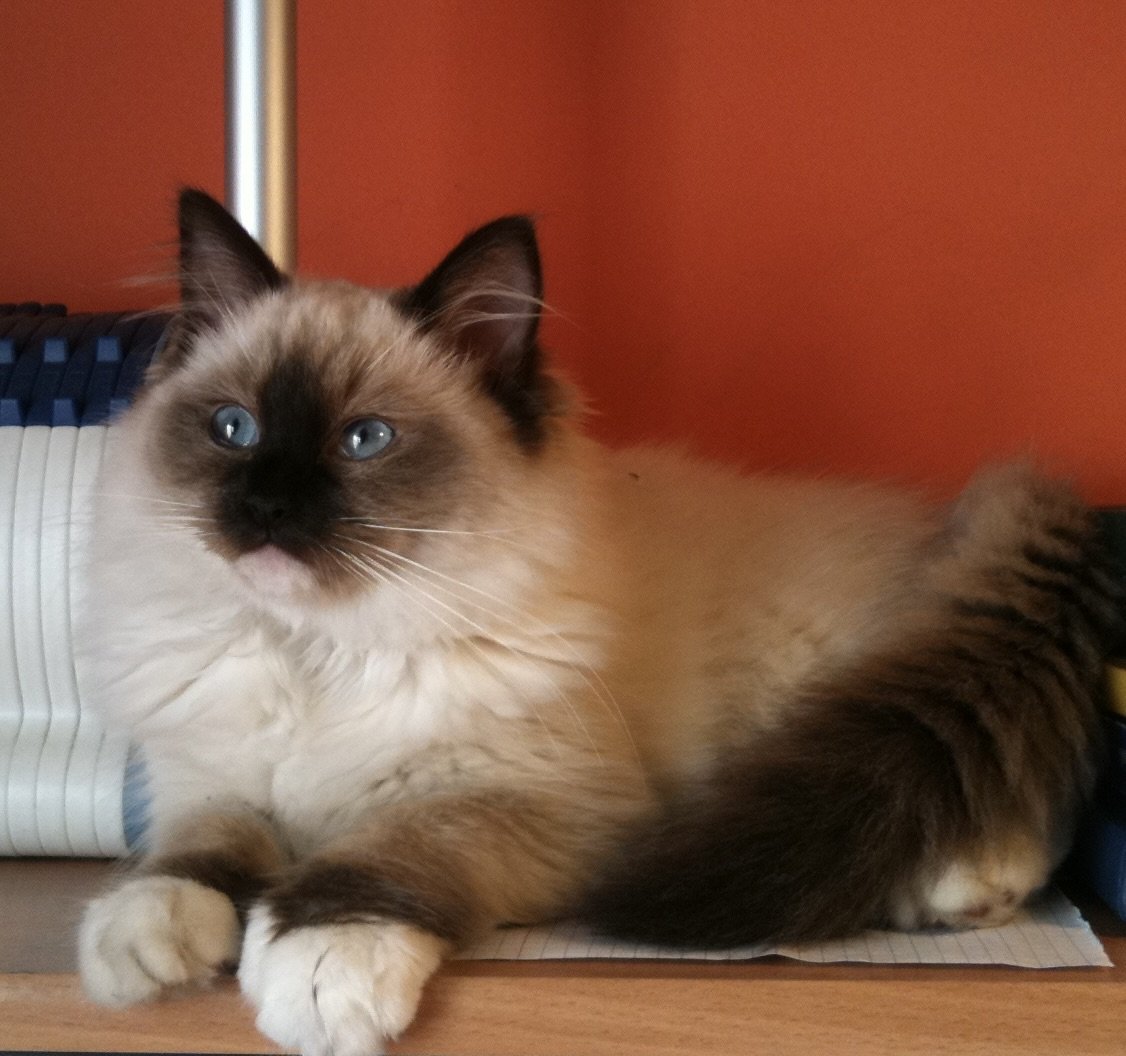
Filters
CLEAR ALLOriginating from the Congo, Basenjis were used as both sight and scent hounds to drive small game into hunters’ nets. They also controlled and managed rodent populations. These dogs are often referred to as “barkless” dogs because they make a unique yodel sound instead of the traditional dog bark.
Basenjis are known to be ultra-clean dogs. So, they are often considered to be more cat-like than dog-like. They will spend many hours cleaning themselves any time they have dirt on their coats. Moreover, they use their paws to clean themselves, and because of this, they don’t have any sort of "doggy” smell to them.
The Basenji is a medium-sized dog breed that boasts an endearing look and poised gait. They are friendly, curious, confident, and intelligent, making them great canine companions. Basenjis form deep, close bonds with their families; however, they tend to bond more with one person in particular. Over the years, these endearing dogs have become one of the most popular choices as family pets in Europe.
These active dogs can adapt to apartment living and can be a match for first-time dog owners. Just make sure to provide sufficient physical and mental stimulation.
Originating from the Congo, Basenjis were used as both sight and scent hounds to drive small game into hunters’ nets. They also controlled and managed rodent populations. These dogs are often referred to as “barkless” dogs because they make a unique yodel sound instead of the traditional dog bark.
Basenjis are known to be ultra-clean dogs. So, they are often considered to be more cat-like than dog-like. They will spend many hours cleaning themselves any time they have dirt on their coats. Moreover, they use their paws to clean themselves, and because of this, they don’t have any sort of "doggy” smell to them.
The Basenji is a medium-sized dog breed that boasts an endearing look and poised gait. They are friendly, curious, confident, and intelligent, making them great canine companions. Basenjis form deep, close bonds with their families; however, they tend to bond more with one person in particular. Over the years, these endearing dogs have become one of the most popular choices as family pets in Europe.
These active dogs can adapt to apartment living and can be a match for first-time dog owners. Just make sure to provide sufficient physical and mental stimulation.



The Basenji is a small hound dog, typically weighing between 22 to 24 pounds and standing 16 to 17 inches tall. Thanks to their alert, pointed ears and bushy, curled tails, they are easy to recognise. They are also famous for their wrinkled foreheads giving them human-like facial expressions and endearing almond-shaped eyes that look directly into your soul.
Despite their lean and compact appearance, these canines have muscular, athletic bodies and long legs, allowing them to keep going all day. They also have square-shaped bodies, meaning their length is proportionate to their height. In addition, they move gracefully and confidently and often straighten out their usually curled tail when running fast to gain better balance.
Basenjis have short coats with fine hair, which may be one of the four standard breed colours. These are chestnut red, black, tricolour (black, tan, and white), or brindle (black stripes on a chestnut base). However, a distinct feature of this breed is that regardless of their colour, all Basenjis will have white chests, feet, and tail tips.
Basenjis are very low shedders, and their short coats require minimal maintenance. Moreover, they have the cat-like nature of grooming themselves, which means they don’t have that typical “dog smell”.
Basenjis typically live between 12 to 16 years, and as one of the oldest dog breeds, they are generally healthy. However, like with many other pedigrees, you should watch out for hypothyroidism, inflammatory bowel disease, and hip dysplasia.
Basenji dogs are alert, energetic, and intelligent canines bred to endure long hunts in the African wilderness. Because of this, they require a lot of daily exercise and long walks, preferably with challenges like hills and sprinting. Moreover, as they do not need to hunt as family pets, they need plenty of mental stimulation instead. So, a regular and consistent training program is highly recommended for this breed.
Basenjis have a playful and curious nature, so they are much more likely to be running around the garden than napping on the couch. Unfortunately, they can also be very mischievous and tend to chew on things, especially as puppies. In fact, most Basenji owners quickly learn what they need to keep out of their reach when they bring their new pup home!
Interestingly, Basenjis don’t bark, but this does not mean they are silent. Instead, these hounds make a yodeling type noise that can be either cute or annoying. They will use their voices to alert you of any intruders (or visitors) and will become noisy if you leave them alone for too long.
Basenjis have an excellent sense of smell, so they tend to wander off. Therefore, you will need an enclosed garden to stop these dogs from getting lost and hunting the neighborhood cats and small wild animals. They are intelligent but strong-willed, so you’ll need plenty of patience when training them. Even so, with a good trainer, they will excel in all canine sports, such as tracking and agility.
Basenjis are ideal for active families looking for a companion for their daily walks or runs. These canines love the outdoors, so they are great to take on hiking adventures, too. They may not be the best choice for new dog owners, though, as they need consistent training and leadership and a lot of patience. Even so, there are many excellent dog trainers out there who can help you out if you’re committed to raising a Basenji.
Naturally, Basenjis will enjoy a home with a fenced garden. Still, because of their size and need to be close to their humans, they adapt very well to living in flats. But, of course, if you do not have an enclosed outdoor space for them, you’ll need to increase their daily exercise regime.
Basenjis do not display a specific fondness for children. However, if raised around them from a young age, they can make good companions. What’s more, because of their high prey drive, they should not be in a home with cats or other small animals. For this reason, they are best as solo pets.



Their stories
We love happy endings. Discover stories of pets who found their beloved family with the help of The Pedigree Paws <3.

Neo
Russian Blue
We had some concerns purchasing a kitten online but our experience with The Pedigree Paws was great. They connected us with Caroline, the Russian Blue breeder and we had many conversations and received multiple pictures and videos. She answered to all our questions.
The Pedigree Paws verified for us all the vaccinations and health checks to make sure our new kitten was 100% healthy.
Thank you for all your help The Pedigree Paws! Highly recommended!

Jack
Miniature Dachshund
One of the reasons I was hesitant to order a puppy from The Pedigree Paws is because I live in Spain. However they connected me with a very good FCI breeder in Barcelona.
He showed me all the health documents of both parents, their pedigree and answer to all my questions. I am so happy they helped me to find a healthy puppy as finding one by myself was very overwhelming. Contacting The Pedigree Paws was the best decision and I highly recommend them to everybody!

Stitch
Chartreux
From the kittens's selection to the arrival of our Chartreux kitten, The Pedigree Paws was there to assist us. We had great experience with them, and they breeder Alexandra from France with whom they connected us and from whom we got our kitten from. They are very prompt in answering our initial and follow-up questions while our kitten was in transit. Very reliable and trustworthy!
Thank you so much for all your help. We are very happy with our new family member. We will definitely recommend it to all our friends.
Athena
Chihuahua
It's been a few months since we decided to find a Chihuahua puppy to join our family, however we had issues finding a good breeder.
We contacted The Pedigree Paws and they connected us with a very unique breeder in Greece. Many videos and pictures were shown, the breeder shared with us the proof of vaccinations, deworming and her 5 generation pedigree. We were fortunate as George, the breeder was able to deliver the puppy to us personally. We are very pleased with our beautiful Athena. Thank you, The Pedigree Paws, for being truthful and transparent.
Thor
Abyssinian
I feel wonderful having help from The Pedigree Paws finding the dream Abyssinian kitten I was looking for. Thor is the absolute dream! The Pedigree Paws team was really patient and responsible in everything. Lovely experience! They replied to every questions, requirements, and information I ask about the kitten.
Fin
Chihuahua
Thank you for finding for me such a beautiful Chihuahua puppy! I love him so much from the minute I saw him. He changed my world.
Kate, from The Pedigree Paws assisted me through the whole process informing me about everything from health checks to arranging a Pet Nanny to transport Fin directly to my door. So thankful that the experience went so well! I love my Fin.

Emi
Ragdoll
I have always wanted a Ragdoll kitten as it was my dream cat breed, but didnt know how to find one as heard a lot about kitten farms and bad breeders. I reached out to The Pedigree Paws and they were very accommodating and transparent from the start. They offered me few kittens from their list of breeders and when I saw Emi I knew she was the one! We went through the kitten's parents DNA testing as for me that was a priority to have a kitten free from genetic disorders. We sealed the deal and now I have the best kitten I could dream of! Thank you very much for all your help
Shima
Russian Blue
I really wanted a Russian Blue kitten, but was very nervous getting one after reading horror stories about scammers on the Internet. I had my first call with Natalia, from The Pedigree Paws and with her help I was able to connect with the breeder, that I knew I could trust. I am very lucky to have now Shima, she is an absolute joy to live with.
Need some help?
Contact us to speak to our friendly advisor, who will gladly help you find your dream pet!



We are registered in England and Wales under registration number 12568840,
and our registered office is at 58-60 Kensington Church Street, W8 4DB London, England.
© 2023 The Pedigree Paws